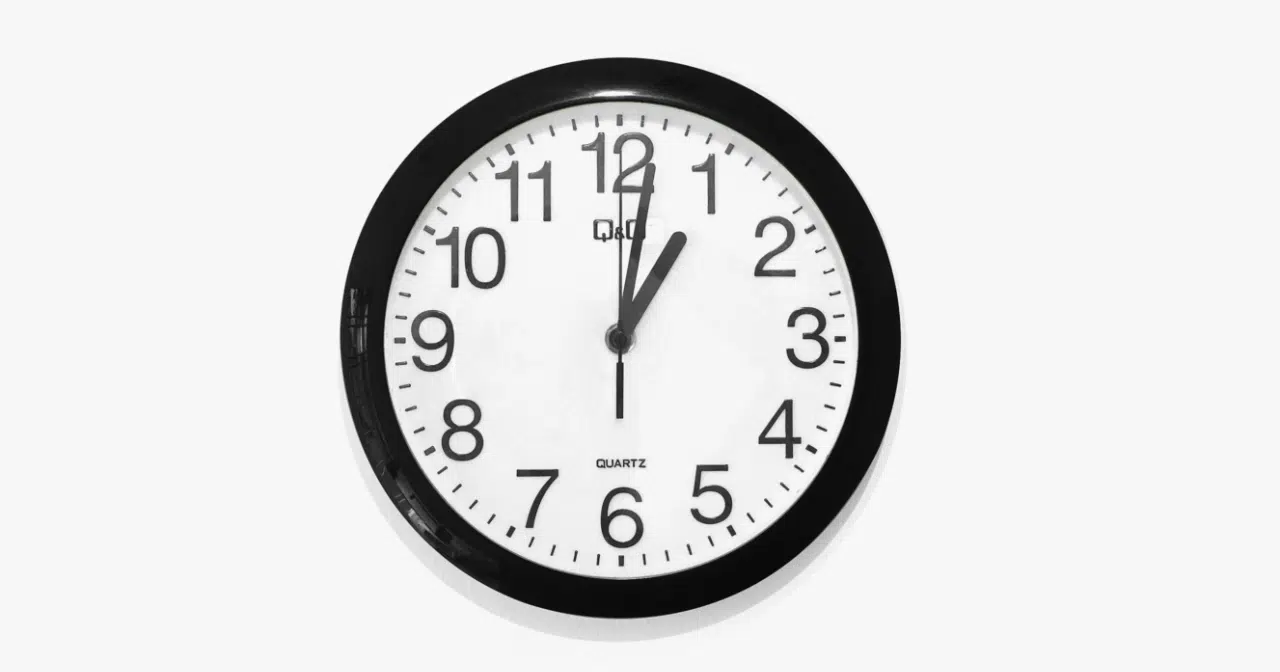Listen on: Apple Podcasts | Spotify
You’ve probably heard the buzz about intermittent fasting (IF). Maybe a friend has raved about their weight loss success, or you’ve read about celebrities who swear by it. I fell into an intermittent fasting 16/8 pattern myself, many years ago.
But what is “Intermittent Fasting 16/8” really about? Is it just another diet fad, or is there real science to support it? Beyond weight loss, what other health benefits should you expect if you follow such a diet pattern? Are there some people who should not follow such a diet pattern?
I’ll address these questions and more in this Ultimate Guide to Intermittent Fasting 16/8.

Feel Better Fast. Guaranteed.
Energy+, EDGE, and MentaBiotics make up the Happy Juice supplement stack, with ingredients clinically proven to:
- decrease anxiousness scores by 55%
- decrease irritability scores by 60%
- decrease fatigue by 64%
- decrease anger 54%
- decrease tension by 45%
- decrease confusion by 43%
- decrease overall distress by 49%
- increase good bacteria by 70%
- decrease negative mood by 105%
- increase positive mood by 211%
- What is Intermittent Fasting 16/8?
- The Science Behind Intermittent Fasting 16/8
- Health Benefits of Intermittent Fasting 16/8
- A Step-by-Step Guide to Starting Intermittent Fasting 16/8
- Fueling Your Body During the 8-Hour Eating Window
- Other Intermittent Fasting Tips
- Who Shouldn’t Do Intermittent Fasting?
- Practical Summary
What is Intermittent Fasting 16/8?
Intermittent fasting is not a diet, but a pattern of eating. It doesn’t tell you what to eat, but when to eat. Sounds simple, right? It is, and that’s part of its appeal.
Fasting is as old as time. It’s only been in recent history that we’ve had food readily available at all times of the day. Easy access to food is part of why we’re so sick and overweight today and one of the reasons I’m so adamant that we should eat meals, not snacks. Intermittent fasting takes the concept of eating less often to another level by limiting the timeframe in which you can eat.
Spending more of your 24-hour cycle in a day without food allows your metabolism to function better and tap into stored body fat more easily, making weight loss fairly simple for most people.
The 16/8 method is one of the most popular ways to do intermittent fasting, and it’s as straightforward as it sounds. You eat all your daily meals within an 8-hour window and then fast for the remaining 16 hours of the day. That’s it. No complicated meal plans, no counting calories – just a simple shift in when you eat.
The Science Behind Intermittent Fasting 16/8
Intermittent fasting (IF) is not about losing weight; it’s about improving metabolic health. Or, you could say that intermittent fasting helps your body work the way it’s supposed to because your eating pattern aligns better with the way your metabolism works best. The secondary benefit of a healthier metabolism is you’ll more easily maintain your weight.
This is an important principle to understand. You follow this pattern of eating to improve your health and metabolic function, which results in weight loss. That’s different from just following a low-calorie diet to lose weight as the primary goal. It’s also a lot better for your body.
When you eat, your body breaks down the food with enzymes in your gut, which eventually ends up as molecules in your bloodstream.
Carbohydrates, particularly sugars and refined grains, are quickly broken down into sugar, which our cells use for energy. Insulin, a hormone made in the pancreas, brings this sugar into the muscle and liver cells if there is room. When there isn’t room, the sugar stays in your blood and wreaks havoc on your body. It also keeps insulin elevated, signaling your fat cells to store more fat and preventing them from releasing stored fat for energy.
When you don’t snack between meals, blood sugar drops, and your insulin levels go down, and your fat cells can release their stored fat to be used as energy.
IF is based on this concept, allowing insulin levels to go down far enough and for long enough that you burn off excess fat. During your fasting window, your body also benefits in other ways, which I’ll explain next.
Health Benefits of Intermittent Fasting 16/8
Remember, the 16/8 method of intermittent fasting (like all of my nutrition recommendations) is intended to improve your health first. That means that almost anyone can benefit, even if weight loss is not your goal. As you’ll see, there are a lot of other health benefits, not to mention the mental benefits of thinking about making meals less often each day.
- Weight Loss and Body Fat Reduction: As I mentioned earlier, one of the reasons intermittent fasting has become so popular is that it usually results in weight or body fat loss. Though intermittent fasting leads many people to eat fewer calories, most people see improvements in body composition even if they eat the exact same foods and calories but eat them in a short window of time.1Moro, T., Tinsley, G., Bianco, A. et al. Effects of eight weeks of time-restricted feeding (16/8) on basal metabolism, maximal strength, body composition, inflammation, and cardiovascular risk factors in resistance-trained males. J Transl Med 14, 290 (2016). https://doi.org/10.1186/s12967-016-1044-0
- Improved Insulin Sensitivity: Intermittent fasting improves insulin sensitivity and reduces blood sugar levels, potentially benefiting people with type 2 diabetes or those at risk. Because you spend less of your day raising blood sugar that occurs when you eat, insulin levels remain lower for more of the day. Over time, your muscle and liver become more sensitive to rising insulin, allowing your body to regulate blood sugar better.
- Cardiovascular Health: Research shows intermittent fasting can improve various risk factors for heart disease, including blood pressure, cholesterol levels, triglycerides, and inflammatory markers.2Klempel MC, Kroeger CM, Varady KA. Alternate day fasting increases LDL particle size independently of dietary fat content in obese humans. Eur J Clin Nutr. 2013;67:783–785. doi: 10.1038/ejcn.2013.83.
- Brain Health: Intermittent fasting may have benefits for brain health and could potentially delay the onset of neurodegenerative diseases like Alzheimer’s. This is believed to occur through various mechanisms, including reduced oxidative stress, reduced inflammation, and a reduction in blood sugar levels and insulin resistance.3Mattson MP, Longo VD, Harvie M. Impact of intermittent fasting on health and disease processes. Ageing Res Rev. 2017 Oct;39:46-58. doi: 10.1016/j.arr.2016.10.005.
- Cellular Repair and Longevity: During fasting periods, cells initiate cellular repair processes, such as removing waste from cells. This is known as autophagy. Autophagy can protect against diseases, including cancer and heart disease, and may enhance longevity.4Alirezaei M, Kemball CC, Flynn CT, Wood MR, Whitton JL, Kiosses WB. Short-term fasting induces profound neuronal autophagy. Autophagy. 2010 Aug;6(6):702-10. doi: 10.4161/auto.6.6.12376.
- Inflammation Reduction: Intermittent fasting reduces inflammation, a key driver of many chronic diseases, including cardiovascular and neurodegenerative diseases.5Mandal S, Simmons N, Awan S, et al. Intermittent fasting: eating by the clock for health and exercise performance. BMJ Open Sport & Exercise Medicine 2022;8:e001206. doi: 10.1136/bmjsem-2021-001206.
A Step-by-Step Guide to Starting Intermittent Fasting 16/8
Ready to give it a go? Here’s how to get started with the 16/8 method of intermittent fasting:
- Choose Your Eating Window: Decide on the 8-hour window that works best for you. This could be from 10 am to 6 pm, noon to 8 pm, or whatever suits your schedule and lifestyle. Some evidence suggests that morning to early afternoon eating offers the best health benefits, but that’s impractical for most people. If you have a family or enjoy going out to eat, it simply won’t work. Instead, most people (myself included) find that eating from lunchtime through dinnertime works best.
- Eat High-Protein Meals: One of the risks of following an eating pattern like this is that you won’t eat enough protein. That’s why I always lead clients toward eating more protein before I’d lead them into intermittent fasting. You still need to consume 0.8 grams (women) to 1.0 grams (men) of protein per pound body goal body weight.
- Stay Hydrated: Because you’re not eating as often, you’ll likely retain less water. That’s part of the reason some people experience lower blood pressure. However, you still need to remain adequately hydrated. Drink plenty of water throughout the day, especially during your fasting window, but you may also want to include additional electrolytes. For example, I usually drink a couple of cups of coffee to start the day, then drink a half-gallon jug of water throughout the morning with a serving of LMNT. By the time the water is gone, it’s usually lunchtime.
- Ease Into It: If jumping straight into a 16-hour fast feels too daunting, start with a smaller fasting window and gradually increase it. If you eat from 7 am until 9 pm right now, try going from 9 am to 9 pm for a few weeks, then continue pushing your first meal forward in time. That way, you’ll be able to mentally and physically adjust to the fasting window better.
- Take Note of How You Feel: Everyone’s experience with intermittent fasting is unique. Some people feel great and full of energy during a fast, while others might feel a bit sluggish. It’s important to pay attention to how it makes you feel. If you’re feeling unwell, it might not be the right approach for you.
If you have any underlying health conditions, especially if you are diabetic or have a history of eating disorders, you should consult with your doctor before starting intermittent fasting.
Fueling Your Body During the 8-Hour Eating Window
The beauty of intermittent fasting is that there aren’t strict rules about what you can and can’t eat other than the fact that you must eat enough protein. However, that doesn’t mean you should go for junk food. Healthy food will always be healthier for you, whether you’re following intermittent fasting or not.
Here’s what you should aim for:
- Protein: Eat meat, fish, poultry, pork, eggs, cottage cheese, Greek yogurt, and protein powder, and eat your protein first so you don’t fill up on carbs and fat. If you’d like to eat some plant-based protein, go ahead, but don’t make it the foundation of your protein intake.
- Carbohydrates: Unprocessed carbs are better for you, but the reality is if you’re eating more protein and eating less often, you’ll probably do well even if you’re eating some processed carbs like bread and chips.
- Healthy Fats: Foods like avocados, grass-fed butter, coconut oil, and nuts are high in healthy fats that can help keep you satisfied and support overall health. As good as they are for you, you can still overeat and limit any weight loss benefits you’d expect from following intermittent fasting.
- Fruits and Vegetables: There’s been much debate about whether fruits and vegetables are necessary in the diet as of late. At this point, I’m still in favor of eating them, though if someone does better without them, I certainly wouldn’t try to convince them to eat them.
- Hydration: Don’t forget to drink plenty of water! Hydration is crucial, especially during your fasting window. Of course, if you’d like to drink other non-calorie beverages while you’re fasting, go ahead.
Other Intermittent Fasting Tips
I should mention a few other essential tips for getting the most out of a 16/8 intermittent fasting eating pattern.
- Get Your Workouts In: Resistance training is just as crucial while intermittent fasting as it is with any other way of eating. If your schedule allows, consider using your workouts as the incentive to eat your first meal. I usually work out in the late morning and then eat my first meal afterward. Some days, I work later than I’d like, but I still hold off eating until I get my workout in. It holds me accountable for my training sessions.
- Sleep Well: Getting a good night’s sleep can help regulate your hunger hormones and make it easier to stick to your fasting schedule. If you don’t get enough sleep, you may find it more difficult to wait to eat your meals as sleep deprivation disrupts your ghrelin and leptin levels, affecting your feelings of hunger and cravings.
- Don’t Overcomplicate Things: Remember, the idea behind intermittent fasting is simplicity. Don’t overthink your meal timing or worry if you can’t stick to your fasting window perfectly every day. The only guidelines I’d want you to stick with are the eating window and your protein intake. Let go of the need to make everything about this eating pattern sound like a strict and complicated diet. The most important thing is finding a routine that works for you and is sustainable in the long run.
Who Shouldn’t Do Intermittent Fasting?
While intermittent fasting can offer numerous health benefits, it’s not suitable for everyone. Certain people should avoid intermittent fasting or consult with a healthcare provider before starting.
- People with Eating Disorders: Individuals with a history of eating disorders, like anorexia and bulimia, should not practice intermittent fasting. Fasting could trigger harmful eating patterns and exacerbate these conditions.
- Pregnant and Breastfeeding Women: Women who are pregnant or breastfeeding require extra nutrients to support their health and the development of their babies. Intermittent fasting could restrict the necessary calorie intake and nutrient absorption.
- People with Advanced Diabetes or Hypoglycemia: Those with advanced diabetes, especially individuals dependent on insulin or other blood sugar-lowering medications, may risk having their blood sugar levels drop too low during a fasting period. Always consult with a healthcare professional before starting an intermittent fasting regimen if you have a chronic medical condition like diabetes.
- Children and Teenagers: Young individuals, especially those in stages of rapid growth and development, require consistent nutrition. Intermittent fasting may not provide enough energy or nutrients during these critical periods.
- People with Certain Medical Conditions: Individuals with certain medical conditions, such as gallstone disease or certain metabolic disorders, may not be advised to fast. Always consult with a healthcare provider before starting a new diet regimen.
- People with Adrenal Fatigue: Those dealing with adrenal fatigue can be hypersensitive to stress. Going without food for a longer period could present another stressor to their body. It’s best to fully recover from adrenal fatigue before attempting to follow a 16/8 pattern of intermittent fasting.
- Older adults: Older adults often develop anabolic resistance, a condition where they get less of a stimulating effect from food and exercise to build or maintain lean mass. That means they need to eat more protein and eat it more often (and exercise more often) to build or maintain muscle mass than they would have as their younger selves.
Remember, everyone’s body responds differently to dietary changes, and what works for one person might not work for another. Always seek personalized advice from a healthcare provider when considering major changes to your diet. If you experience any adverse symptoms while fasting, such as extreme fatigue, dizziness, or heart palpitations, it’s crucial to stop fasting and seek medical attention.
Practical Summary
Intermittent fasting 16/8 is a flexible and sustainable method of eating that can help you achieve weight loss and improve several health markers. Recent studies back up its benefits, with evidence suggesting that it’s not just about how much you eat but when you eat that matters. In fact, when you eat could be even more important than what or how much you eat.
If you’re already eating enough protein, try the intermittent fasting 16/8 approach. Not only might you feel better, but you’ll probably appreciate how much more you get done when you spend less of your day in the middle of a meal.



